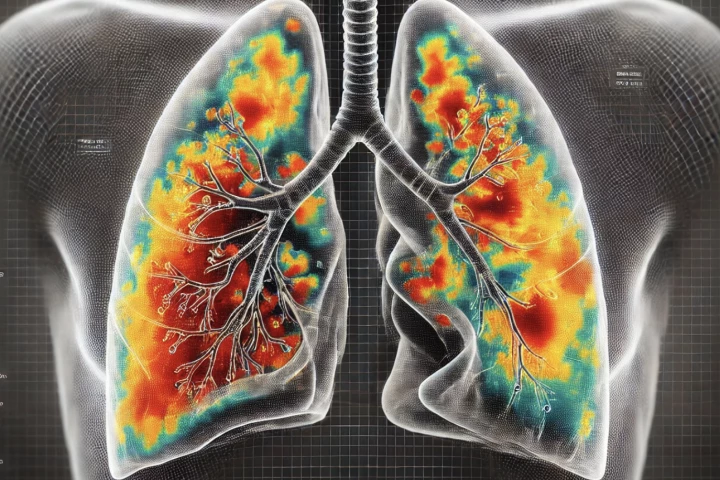Lung
-
Not getting enough vitamin D can weaken bones, teeth, and muscles by interfering with calcium absorption. Now there's another reason to avoid a serious D deficiency: it can make respiratory tract infections much worse, according to a new study.
-
Scientists who won a 2024 IgNobel Prize for "discovering that many mammals are capable of breathing through their anus" have now completed a successful trial based on this, using a technique that gets oxygen into the blood via an unconventional route.
-
Hair care may be turning your bathroom into a hazardous emissions zone, as scientists find that 10-20 minutes of styling with common products and tools resulted in 10 billion ultrafine particles being inhaled and able to cross into the bloodstream.
-
New research has identified the mechanism by which air pollution damages the lungs’ self-cleaning system, leaving us vulnerable to infection. In doing so, it has also identified a way to reverse that damage and restore lung function.
-
While a stethoscope will tell you if someone has a respiratory ailment, it will only share that info in the few minutes it's being used. A new device could paint a much bigger picture, by monitoring the patient's breathing for days at a time.
-
A three-year study has found robust evidence that one vaccine for respiratory syncytial virus offers older adults long-term protection, even if efficacy wanes. Despite this, just one dose cut serious illness by nearly two thirds across three seasons.
-
Researchers have discovered a particular type of cancer cell that relies on its own biological electric utility company to thrive. Disrupting this power plant – with the help of a puffer fish – showed a breakthrough way to fight the tumors.
-
A breakthrough new AI model is able to detect the presence of different lung diseases from ultrasound videos, with 96.57% accuracy, and it is even able to distinguish whether the abnormalities are due to pneumonia, COVID-19 or other conditions.
-
A coughing, sneezing, 3D-printed model of the human nose and upper airway has provided researchers with a better understanding of how airborne infections are transmitted. The knowledge will aid in developing effective ways of reducing that spread.
-
Researchers have developed a nanoscale sensor that detects lung cancer by analyzing isoprene levels in your breath. The team believes its breakthrough could unlock a non-invasive, low-cost method to catch the disease early and save lives.
-
Zinc has been found to be important in reducing lung infections in people with cystic fibrosis, whose immune cells' natural bacteria-fighting ability has been reduced by the genetic mutation that causes the disease.
-
Improving the health of the gut microbiome by way of fecal transplant or dietary modification has been shown to noticeably improve COPD symptoms, opening the door to microbiome-targeted treatments for this currently incurable condition.
Load More











